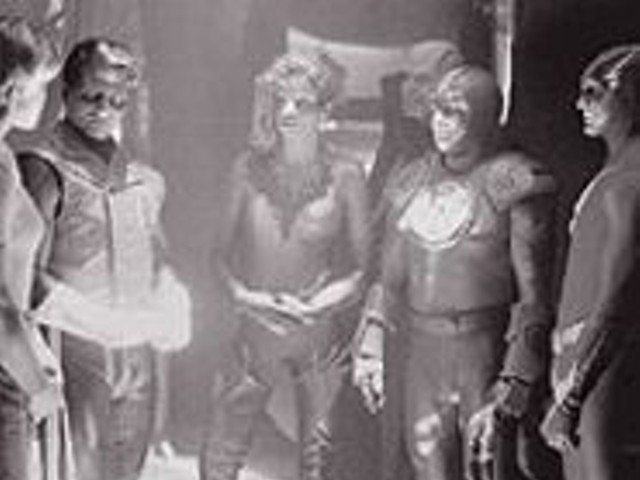The songs -- "Some Enchanted Evening," "Younger than Springtime," "Bali Ha'i" and "I'm in Love with a Wonderful Guy" -- are some of Rodgers' best. Hammerstein's lyrics, although occasionally silly (e.g., "I touch your hands and my arms grow strong/like a pair of birds that burst with song" -- huh?), are pretty good, considering the way the partnership worked. Rodgers wrote the tune, then Hammerstein made the words to fit it. This may explain why Hammerstein was so graceful and articulate when collaborating with Jerome Kern, Otto Harbach or Sigmund Romberg, all of whom set his lyrics -- often elegant and always literate -- after they were written. Hammerstein's willingness to go along with Rodgers gave the latter free rein to drift into sentimentality and easy melody. Finally, South Pacific does not have a clunking, goopy inspirational ballad (e.g., "You'll Never Walk Alone," "Climb Ev'ry Mountain"), which became a hallmark of most other R&H shows, to make us feel we're at a nondenominational wedding or funeral.
Most theatergoers have seen at least one version of South Pacific, but the reason this one is worth a drive across the river is the singing of Lori Barrett-Pagano as Ensign Nellie Forbush and Joel D. Knapp as Emile de Becque. Neither Barrett-Pagano nor Knapp is much of an actor, but their voices are superb, especially Barrett-Pagano's. Carla Schumacher, the production's Bloody Mary, handled "Bali Ha'i" acceptably but did not make much of the song's majestic and powerful dynamics, which can render it a show-stopper. Keith Dudding, the production's Luther Billis, the wheeling/dealing Seabee, on the other hand, can act, as can Eric Barnett and Gregory J. Conroy. Their antics, combined with the dynamism of the young male dancers and chorus members, were consistently lively and engaging. Too bad the women didn't match the guys.
The production's music director, Patrice Stribling Donald, deserves congratulations for her work, but almost everyone else needs a dope slap for general tackiness. James R. Dorethy's scenic design isn't all that bad, although the Corinthian pillars of de Becque's plantation home are a little too much. In contrast, Paula Beals' choreography is a lot too little -- unimaginative and really unworthy of an SIU-E production. How could she have the young maidens of Bali Ha'i not do a hula? Y. Michelle Collyar's costumes are just awful, particularly her work with the military uniforms, which are so called because they're supposed to be just that -- uniform. Collyar's nurses, however, slink around in an assortment of garments that miss entirely the smartness of the WAVES, and the men wear stuff whose closest connection to the Navy may be its AMVETs origins.
Peter Cocuzza, the show's director, does his best work with comedy but falls down elsewhere. He should have gotten more movement and more realistically delivered lines out of Barrett-Pagano and, to a lesser extent, Knapp. Too much of the time, people not singing just stood there while others sang, and if a director has one primary duty, it's to keep things moving. It's not called acting just to give a name to what happens onstage.
South Pacific continues through July 16.





